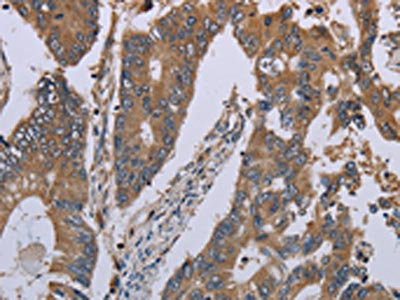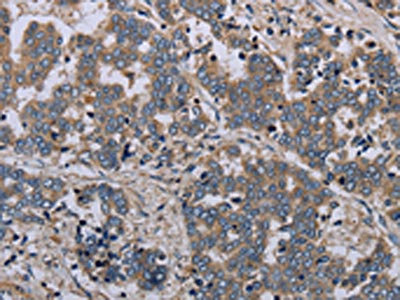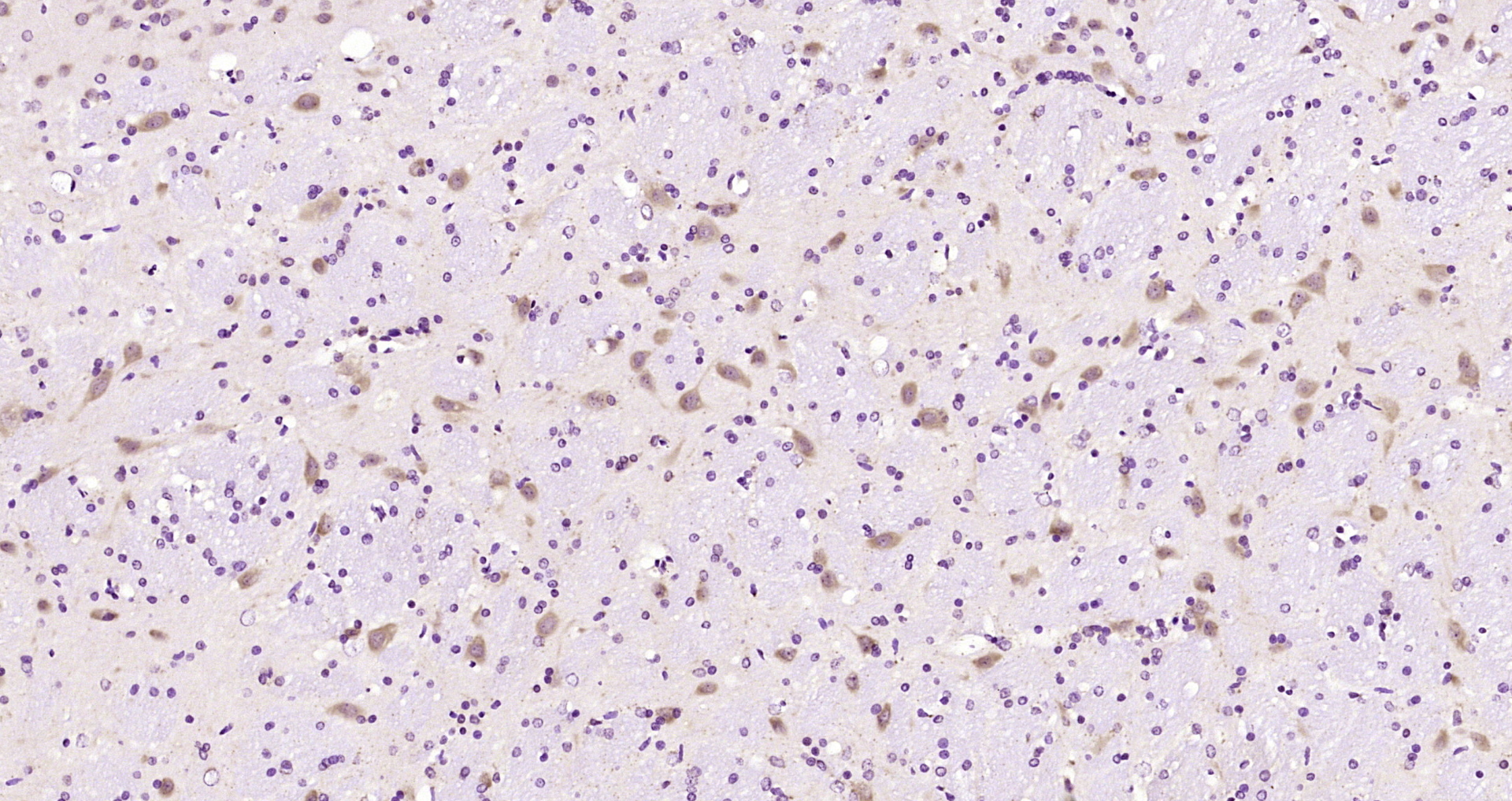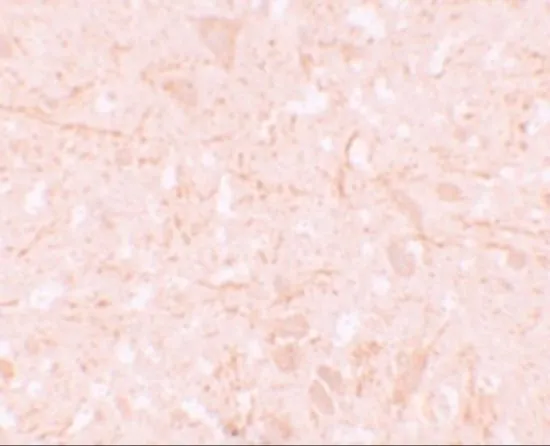
The image on the left is immunohistochemistry of paraffin-embedded Human colon cancer tissue using CSB-PA069966(NLRP12 Antibody) at dilution 1/30, on the right is treated with synthetic peptide. (Original magnification: x200)
NLRP12 Antibody
CSB-PA069966
ApplicationsELISA, ImmunoHistoChemistry
Product group Antibodies
ReactivityHuman, Mouse
TargetNLRP12
Overview
- SupplierCusabio
- Product NameNLRP12 Antibody
- Delivery Days Customer20
- ApplicationsELISA, ImmunoHistoChemistry
- CertificationResearch Use Only
- ClonalityPolyclonal
- ConjugateUnconjugated
- Gene ID91662
- Target nameNLRP12
- Target descriptionNLR family pyrin domain containing 12
- Target synonymsCLR19.3, FCAS2, NALP12, PAN6, PYPAF7, RNO, RNO2, NACHT, LRR and PYD domains-containing protein 12, PYRIN-containing APAF1-like protein 7, monarch 1, nucleotide-binding oligomerization domain, leucine rich repeat and pyrin domain containing 12, regulated by nitric oxide
- HostRabbit
- IsotypeIgG
- Protein IDP59046
- Protein NameNACHT, LRR and PYD domains-containing protein 12
- Scientific DescriptionThis gene encodes a member of the CATERPILLER family of cytoplasmic proteins. The encoded protein, which contains an N-terminal pyrin domain, a NACHT domain, a NACHT-associated domain, and a C-terminus leucine-rich repeat region, functions as an attenuating factor of inflammation by suppressing inflammatory responses in activated monocytes. Mutations in this gene cause familial cold autoinflammatory syndrome type 2. Alternative splicing results in multiple transcript variants.
- ReactivityHuman, Mouse
- Storage Instruction-20°C or -80°C
- UNSPSC41116161








